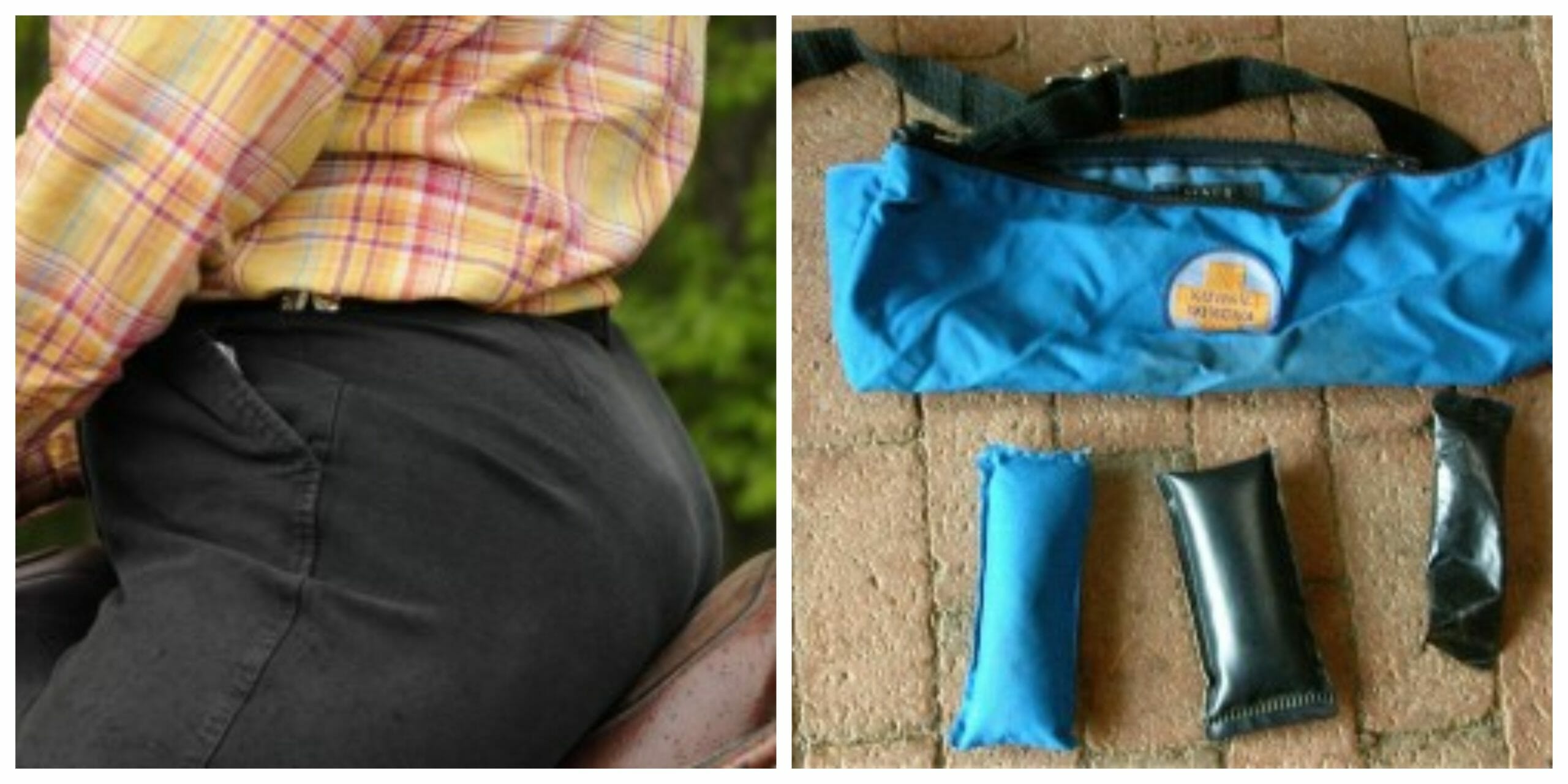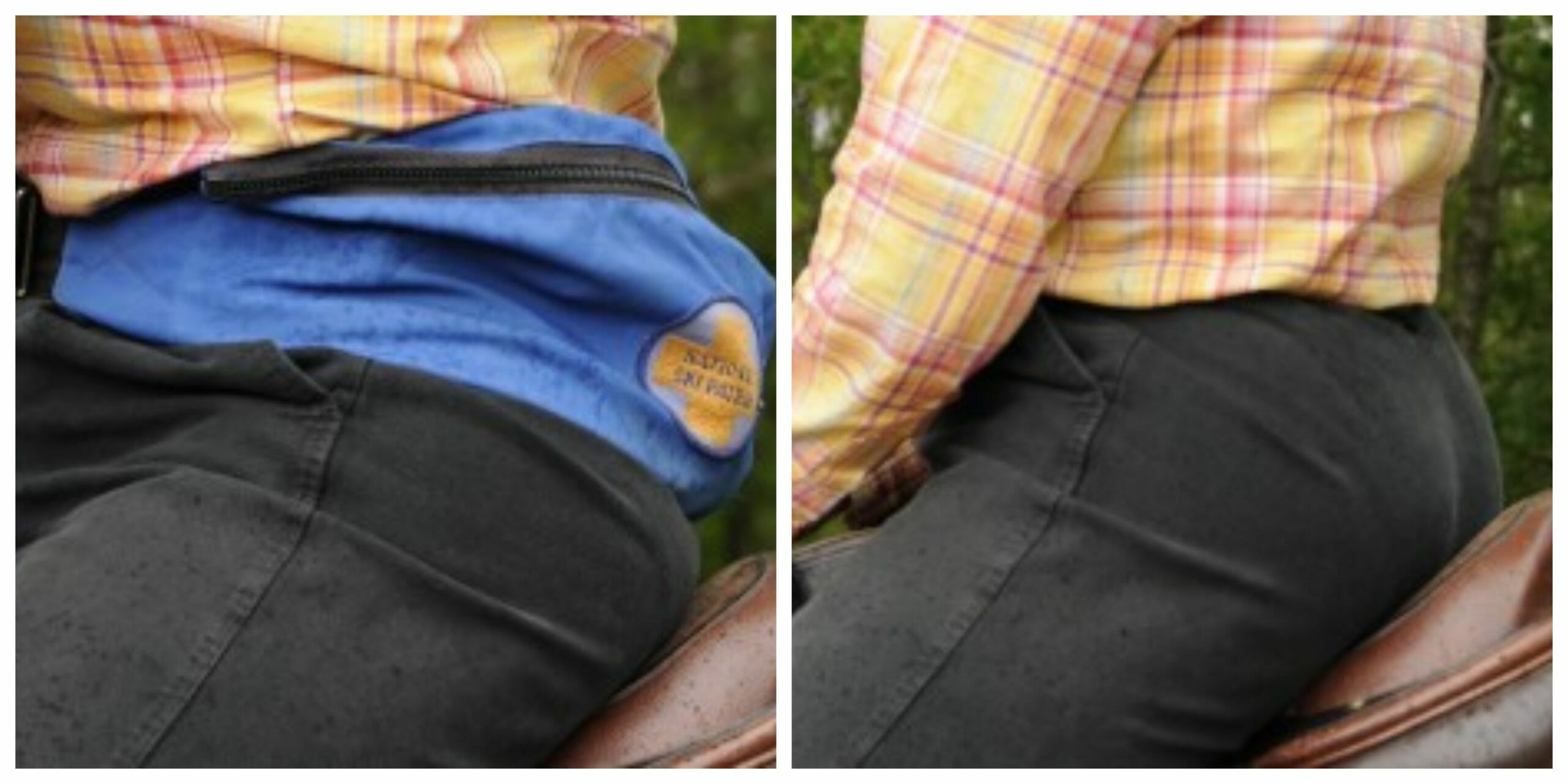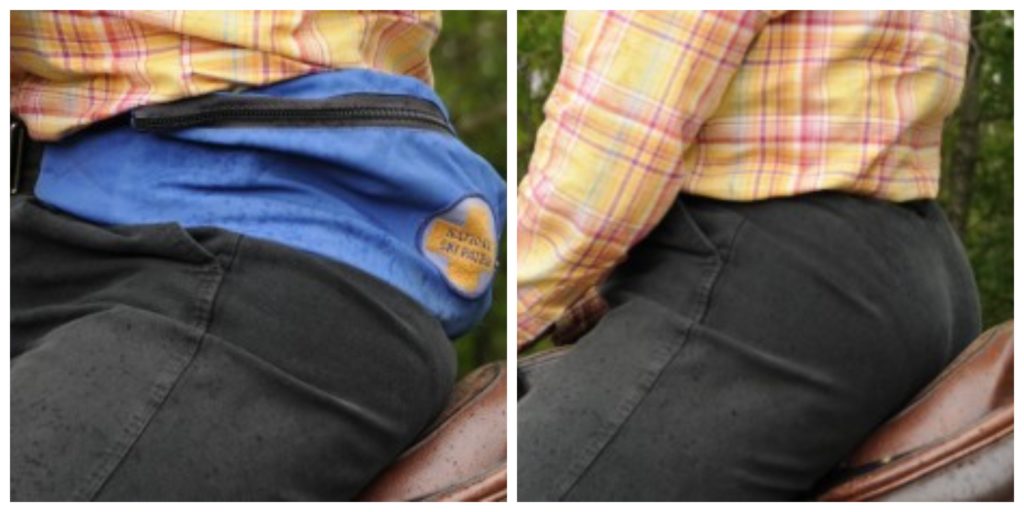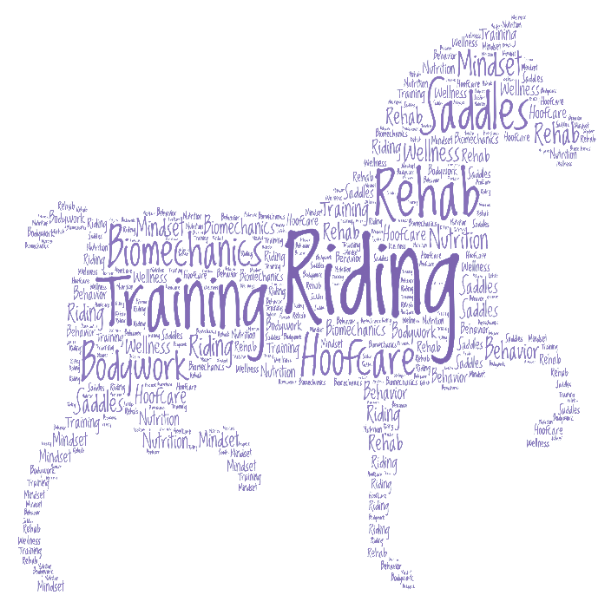IMPROVING RIDER POSITION ON YOUR HORSE
SITTING DEEP IN THE SADDLE
Do you have trouble keeping your balance? Do you tend to pitch forward? Do you have difficulty sitting to the canter? Would you like to feel deeper in the saddle? Here’s a quick tip to deepen your seat.
Next time you ride, take note of what happens to your seat. Do you feel like you can’t sit down in the saddle? Do you tend to hollow your back? Does your horse travel on the forehand? Do you brace against your stirrups to feel secure? If you put one hand on your lower back as you are riding, is it hollow?
In order to sit deep in the saddle, your sacrum, the flat triangular bone forming the back of your pelvis, needs to hang down. If you have a tendency to hollow your back, or stick your seat bones out behind you, this will be difficult. Students often tell me they have a natural curve to their lower back, which prevents them from lengthening their back. In my experience this is more commonly a postural habit, not rider conformation.
Almost everyone has a forward curve to their lower back. This is developed during infancy in order for us to stand up and walk. However the amount of curve is often accentuated by our patterns of standing, walking and the image we have as riders. If you have worked hard to ‘sit up straight’ and ‘pull your shoulder’s back’ you may have exaggerated the forward curve (lordosis) or hollowness of your lower back. Normally when we sit, the spine straightens a bit. In order to sit deeply in the saddle it is important to let the curve decrease rather than tightening muscles that accentuate the curve.

Above left:This rider’s sacrum tips up, her seat bones are out behind her and her back is hollow. Above right: Use some kind of bum bag (in this case an old ski patrol belt) and something heavy, but not lumpy. Here we are using lead weights from an old lead saddle pad.
AN EASY EXERCISE TO HELP YOU FLATTEN YOUR BACK
Knowing you have to let your sacrum hang down and flatten your back is one thing, but allowing that to happen while riding isn’t always that easy to accomplish. Here is a simple solution to give you the sense of lengthening your back, let your sacrum hang down and being weighted in the seat.
Find a zipper pouch that you can strap around your waist and some weights. You can use any kind of bum bag for the pouch. For weights use something soft like ankle weights, but anything that is dense and heavy will work. Make sure that you can secure the weighted pouch so that it doesn’t bounce around as your ride.
Begin to ride at the walk to get used to the weight on your sacrum in movement. Make sure that the pouch is not shifting around. Let the weights suggest the downward direction of your sacrum deepening your seat in the saddle. Once you have acclimated, begin to ride at the trot. Eventually try the canter. Only increase speed when you are comfortable with the feeling of the weights. Notice how the well-placed weights help you sit the canter and give you the feeling of sitting deeply in the saddle at all gaits.
Remember, for the horse to collect himself he must lower his hindquarters (pelvis) to engage. In order for you to collect your horse you must allow your sacrum to hang down and deepen your seat in the saddle. Essentially the weights lower your center of gravity so that you can collect yourself.
 Above left: Place the belt low on your waist so that the weights rest on your sacrum. Make sure the belt is snug so that the weights do not bounce on your sacrum while you ride. Above right: After using the weight belt,the rider’s seat bones are under her and her waist at the back is lengthened.
Above left: Place the belt low on your waist so that the weights rest on your sacrum. Make sure the belt is snug so that the weights do not bounce on your sacrum while you ride. Above right: After using the weight belt,the rider’s seat bones are under her and her waist at the back is lengthened.
Use this Murdoch Minute to help you feel what it is like to let your seat deep in the saddle. When you can allow your back to lengthen and let your sacrum hang down you will find that it is easier sit in all gaits and to shift your horse’s weight to the hindquarters and collect his frame. And always remember to – Enjoy the ride!






